West Bengal,India
To Know More About West-Bengal
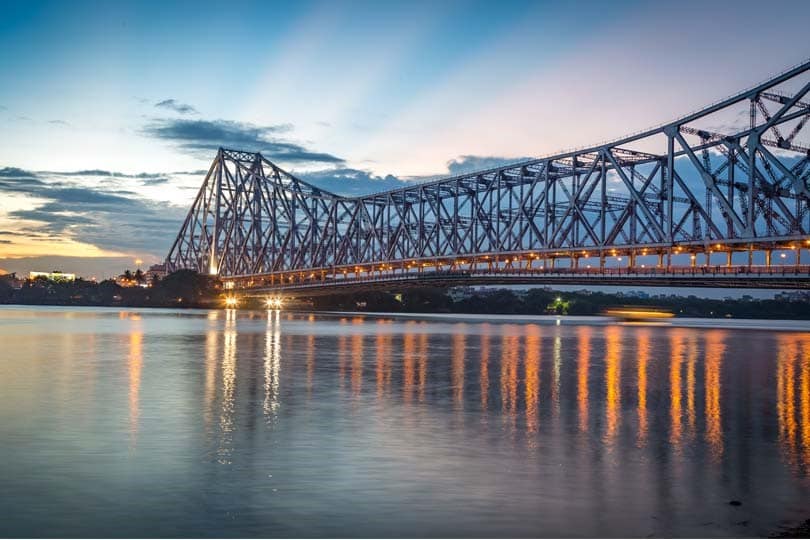 West Bengal is a state in eastern India, between the Himalayas and the Bay of Bengal. Its capital, Kolkata (formerly Calcutta), retains architectural and cultural remnants of its past as an East India Company trading post and capital of the British Raj. The city's colonial landmarks include the government buildings around B.B.D. Bagh Square, and the iconic Victoria Memorial, dedicated to Britain's queen.
West Bengal is a state in eastern India, between the Himalayas and the Bay of Bengal. Its capital, Kolkata (formerly Calcutta), retains architectural and cultural remnants of its past as an East India Company trading post and capital of the British Raj. The city's colonial landmarks include the government buildings around B.B.D. Bagh Square, and the iconic Victoria Memorial, dedicated to Britain's queen.
India's cultural cauldron of West Bengal combines the arts, the city, the countryside, mountains, and nature. Whether you're intellectually inclined and want to be among writers and wandering minstrels, or adventurous and want to roam with rhinoceroses, these diverse West Bengal tourist places offer it all.
Kolkatta
The West Bengal capital of Kolkata, officially known by its British name of Calcutta until 2001, 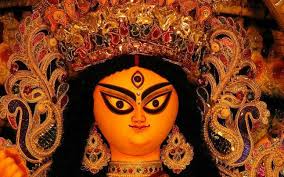 has undergone a dramatic transformation over the last decade. No longer identified with slums, destitution, and the inspiring work of Mother Teresa, Kolkata has grown into the "cultural capital of India". It's a conflicting city full of captivating soul and sadly neglected crumbling buildings where time seems to have stood still in parts. In addition, Kolkata is the only city in India to have a tram/street car network, which adds to its old-world charm.
has undergone a dramatic transformation over the last decade. No longer identified with slums, destitution, and the inspiring work of Mother Teresa, Kolkata has grown into the "cultural capital of India". It's a conflicting city full of captivating soul and sadly neglected crumbling buildings where time seems to have stood still in parts. In addition, Kolkata is the only city in India to have a tram/street car network, which adds to its old-world charm.
Sundarbans National Park
The Sunderbans is one of the top national parks in India. This magnificent tangle of mangrove jungle is the largest in the world -- and the only one to have tigers! It's spread over 102 islands (about half of which are inhabited) and extends into neighboring Bangladesh. The Sundarbans is only accessible by boat and exploring it this way is a unique experience that shouldn't be missed. Don’t be hopeful of seeing any tigers though. They're very shy and usually remain well hidden in the reserve. Location: 100 kilometers (62 miles) southeast of Kolkata
Darjeeling
Most famous for its lush tea gardens, Darjeeling is one of India's top 10 hill stations. Most of the top things to do in Darjeeling center around tea. However, the town is blessed with a stunning view of Mount Kanchenjunga (the world's third highest peak) and has some interesting monasteries, local markets, handicrafts, and Tibetan and Nepalese food. Before being developed by the British in the mid-19th century, Darjeeling was part of the kingdom of Sikkim and was also temporarily ruled by invading Gorkhas from Nepal. This gives the town a distinctly different culture to other tourist places in the state. To get there, travel on the historic Darjeeling mountain railway toy train. Don't visit during the monsoon season though -- the region is one of the wettest places in India!
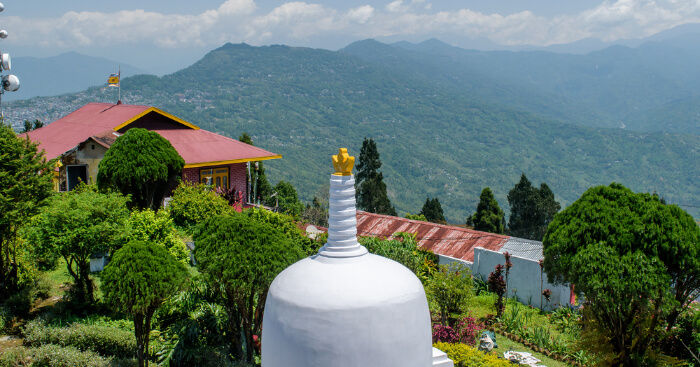
Kalimpong
If you'd prefer to be away from the crowds, Kalimpong is a less-touristy alternative under three hours from Darjeeling. The town sits on a ridge overlooking the Teesta River, which separates it from Sikkim. It was ruled by the Sikkimese until the early 1700s when it was taken over by the king of Bhutan. The British won it back in 1865. Attractions include Buddhist monasteries, adventure activities, trekking, and nature walks. There are plenty of hills and villages to explore in the vicinity. Location: About 630 kilometers (390 miles) north of Kolkata, at the base of the Eastern Himalayas.
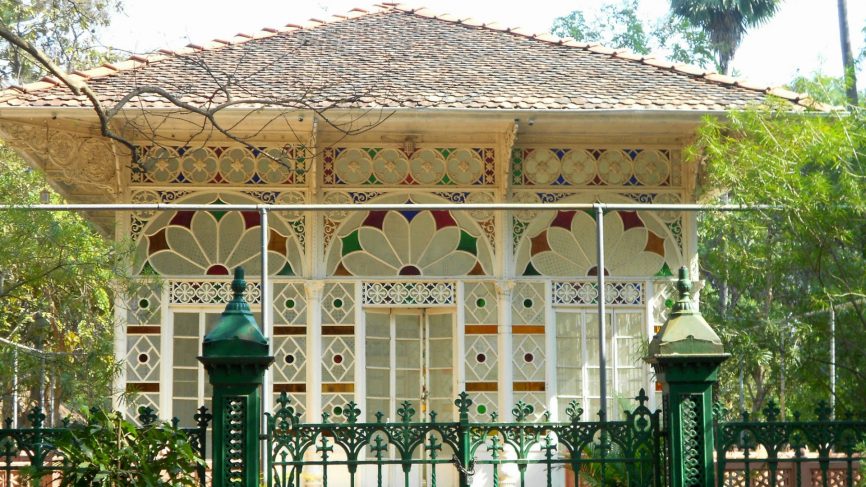
Shantiniketan
They say that the quaint university town of Shantiniketan (meaning Abode of Peace) is better comprehended than seen. Noble Laureate poet Rabindranath Tagore founded a school there in 1901, which later developed into the Visva Bharati University with an emphasis on humanity's relationship with nature. One of the main attractions in Shantiniketan is the Uttarayan complex where Tagore lived. It now has a museum and art gallery. The Upasana Griha prayer hall also stands out because of its many-colored glass windows. Kala Bhavan is considered to be one of the best visual arts colleges in the world. It has wall paintings, sculptures, frescoes, and murals of famous artists. Shantiniketan is also a well regarded center for traditional handicrafts such as batik, pottery, weaving, and embroidery. Shop at Alcha boutique and Amar Kutir. The best time to visit is during one of the many festivals such as the three day Poush Mela (usually in late December), with its live Bengali folk music, and Holi (celebrated as Basanta Utsav). Alternatively, try to catch the Bondangar Haat (village market) that's held every Saturday. Wandering Baul singers are as much a feature as the handicrafts. Location: About 160 kilometers (100 miles) northwest of Kolkata.
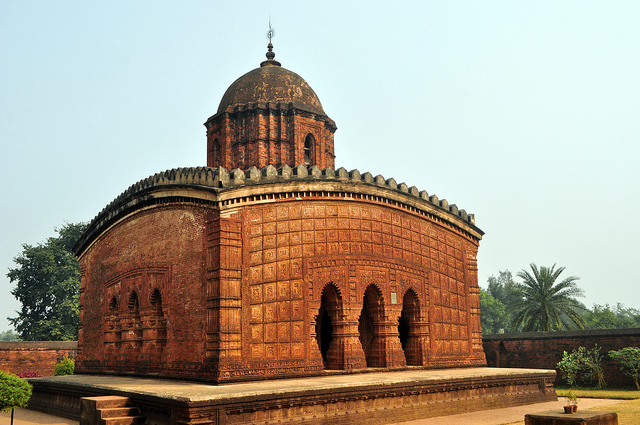
Bishnupur
Bishnupur is renowned for being the birthplace of terracotta. It's remarkable terracotta temples and terracotta pottery are the main attractions. The temples were built mostly during the 17th and 18th centuries by Malla dynasty rulers. During this time, there was a revival of Hinduism with devotion to Lord Krishna, after a prolonged period of Islamic dominance. The result was temple architecture that unusually blended Bengali-style curved roof with Islamic domes and arches, and Odia-style duel (sanctum). The detailed carvings on the temples' terracotta tiles feature scenes from Lord Krishna's life, as well as the Hindu epics The Ramayana and The Mahabharata. Reproductions of the tiles are sold everywhere. Beyond Bishnupur, you'll find more spectacular terracotta temples in the district. Location: About 140 kilometers (87 miles) northwest of Kolkata.
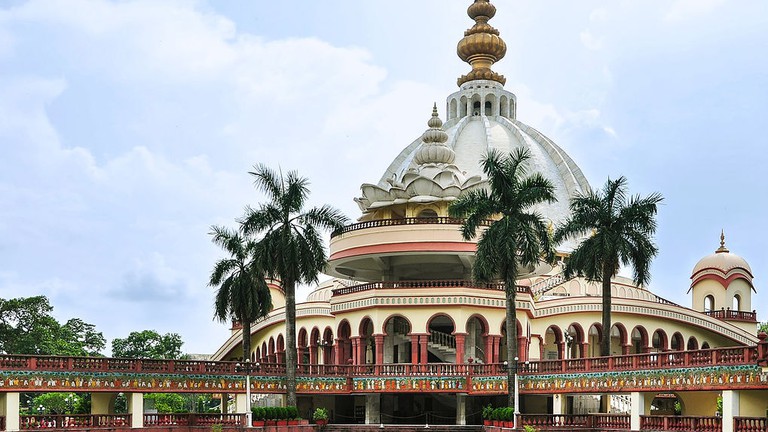
Mayapur
Mayapur is laid-back pilgrim city with special significance for followers of Lord Krishna. It's regarded as the the birthplace of Shri Chaitanya Mahaprabhu, a 15th century Vedic spiritual leader belived to be an avatar of Lord Krishna. His teachings were revived and brought to the west in the 20th century by Srila Prabhupada, who founded the International Society for Krishna Consciousness (ISKCON) and spread the "Hare Krishna movement" throughout the world. The headquarters of ISKCON is located in Mayapur, along with a magnificent temple complex dedicated to Srila Prabhupada. Location: About 125 kilometers (78 miles) north of Kolkata, at the confluence of the Hoogly and Jalangi rivers.
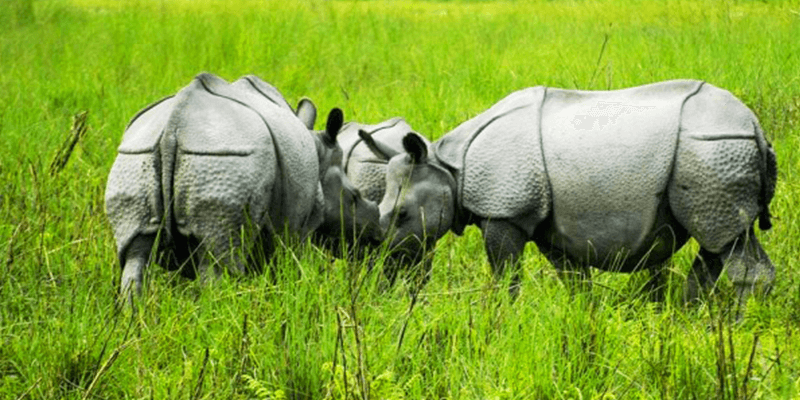
Dooars Region and Jaldapara National Park
If you can't make it all the way as far as Kazaringa National Park in Assam to see the rare one-horned rhinoceros in the wild, don't despair. Jaldapara National Park has about 50 of these creatures, and you can view them close up on an elephant safari. The sanctuary is the most well-known forest in the remote Dooars region. If you stay at the Forest Department's Hollong Tourist Lodge deep inside the national park, you'll be blessed with the sight of animals wandering to the nearby creek and salt lick -- rhinos included! It's possible to make reservations for the tourist lodge online. Otherwise, Mithun Das of Wild Planet Travels in Madarihat is the best person for all travel arrangements, including lodge bookings and safaris. The sanctuary is open from October through May. The top months for rhino watching are March and April when the new grass comes up. Location: About 680 kilometers (425 miles) north of Kolkata, at the Himalayan foothills of West Bengal close to Bhutan.
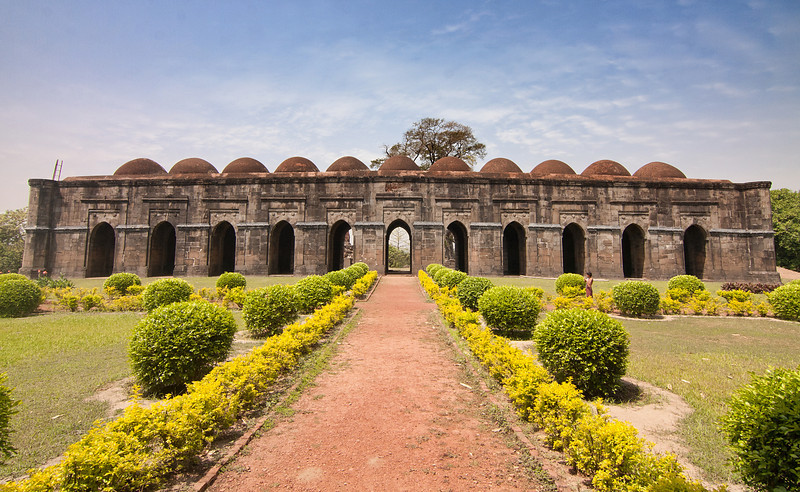
Pandua and Gaur
Spread throughout Pandua and Gaur, in West Bengal's Malda district, are the fascinating ruins of the former capitals of Muslim nawabs (rulers) dating back to the 13th-16th centuries. Most of the ruins are mosques, including the 14th century Adina Masjid in Pandua. It's one of the largest mosques in India and it contains the tomb of its builder, Sikander Shah. Location: About 330 kilometers (205 miles) north of Kolkata.

Mandarmani Beach
Avoid overcrowded Digha Beach and head to Mandarmani Beach instead. Although it's not far from Digha, this fishing village with a super long stretch of beach is so much more peaceful and unpolluted. Bombay Beach Resort and Eco Villa Resort are good places to stay there right on the beach. If you're lucky, you may be able to spot clusters of red crabs running along the sand at sunset. Location: About 180 kilometers (112 miles) southwest of Kolkata.
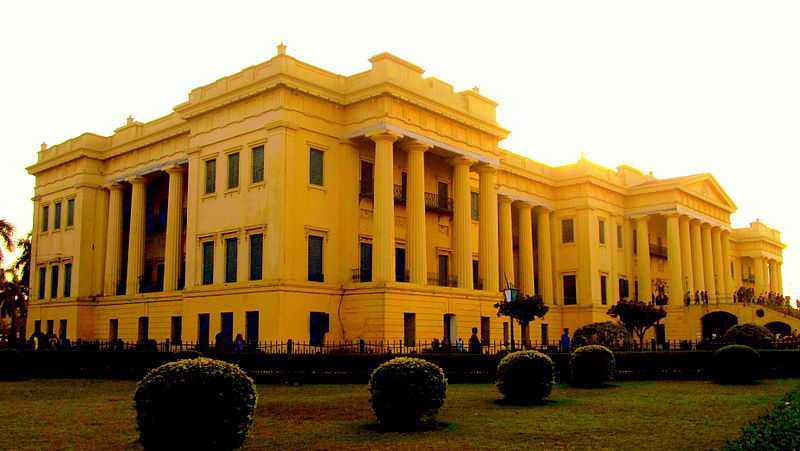
Murshidabad
Murshidabad was the capital city of the Bengal region during the Mughal empire, and the last capital before British rule. As a result, it has numerous palaces and mosques with marvelous Mughal architecture, plus many more ruins. Intriguing tales of treachery draw tourists to Murshidabad as well. It was nearby that Nawab Siraj Ud-Daulah wrongly lost his reign to the British in the 1757 Battle of Plassey, after the British bribed the commander-in-chief of the Nawab's army. The British met with the traitor, Mir Jafar, at Kathgola Palace in Murshidabad to discuss the promised payment. Imposing Hazarduari Palace is the main attraction though. It has 1,000 doors, and has been turned into a museum with an exquisite collection of regal memorabilia. Location: About 200 kilometers (125 miles) north of Kolkata, on the eastern bank of the Hooghly River.
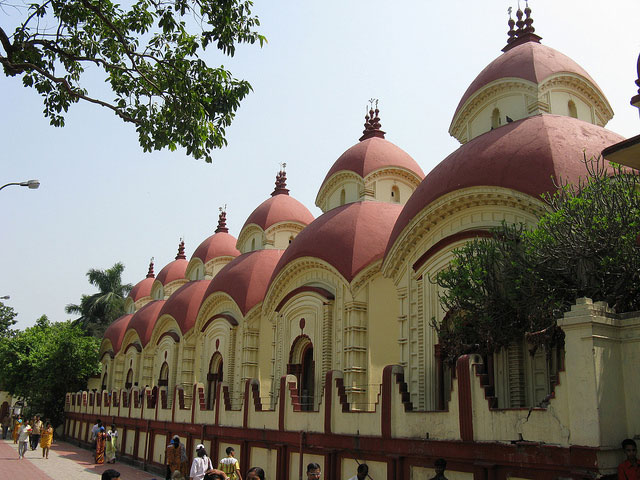
Barrackpore
History buffs should also head to Barrackpore, where the British set up their first military barrack or cantonment in India in 1772, to explore some relics of the Raj era. After the British gained control of India, the area was transformed into a retreat for the Kolkata-based governors-general and viceroys. Barrackpore started losing its sheen after the British capital was shifted to West Bengal. However, the heritage buildings and park were recently restored, and a museum constructed. Notably, the city was home to some important members of the Indian independence movement. In fact, Barrackpore was the scene of an incident widely credited with starting the Indian Rebellion of 1857. Location: About 35 kilometers (22 miles) north of Kolkata.
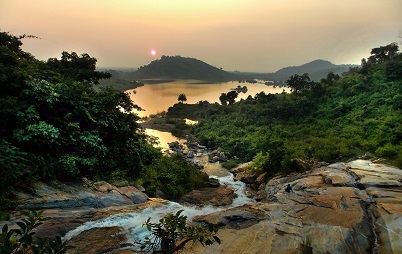
Purulia
West Bengal's Purulia district is home to the distinctive acrobatic masked Chhau dance, performed in honor of the sun god. The dance was inscribed in UNESCO's Representative List of Intangible Cultural Heritage of Humanity in 2010. An annual three-day Chau Jhumur Utsav festival featuring the dance takes place in late December in Balarampur. The masks are made about 45 minutes away in Charida village near Baghmundi, where about 300 artisans are involved in the craft. Location: About 290 kilometers (180 miles) northwest of Kolkata.
Along the Hooghly River
A cruise along the Hooghly River, a lower channel of the Ganges River, provides a memorable glimpse into village life. The Assam Bengal Navigation Company offers comfortable 7-night cruises from Kolkata to Farakka, with the return journey by rail. This stretch is most interesting due to its British, Dutch, French, Portuguese, and Danish heritage -- all of these countries established 18th century trading posts there and you'll get to see the remnants of them, as well as markets, temples, and old mosques.
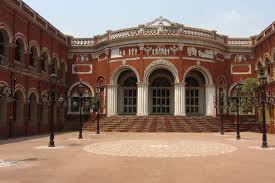
Royal Rajbari Heritage Homes
West Bengal is dotted with rajbaris (homes of erstwhile royalty). Unfortunately, post-independence, they've widely fallen into ruin as it costs too much to maintain them. Some have recently been restored and turned into boutique hotels though (with the royal hosts still in residence). They provide a unique and immersive way of experiencing regional West Bengal, and learning about the state's regal heritage. Options include Jhargram Palace, Rajbari Bawali, Itachuna Rajbari, Amadpur Rajbari, and Mahishadal Rajbari. Itachuna is thought to be one of the oldest rajbaris in the state.
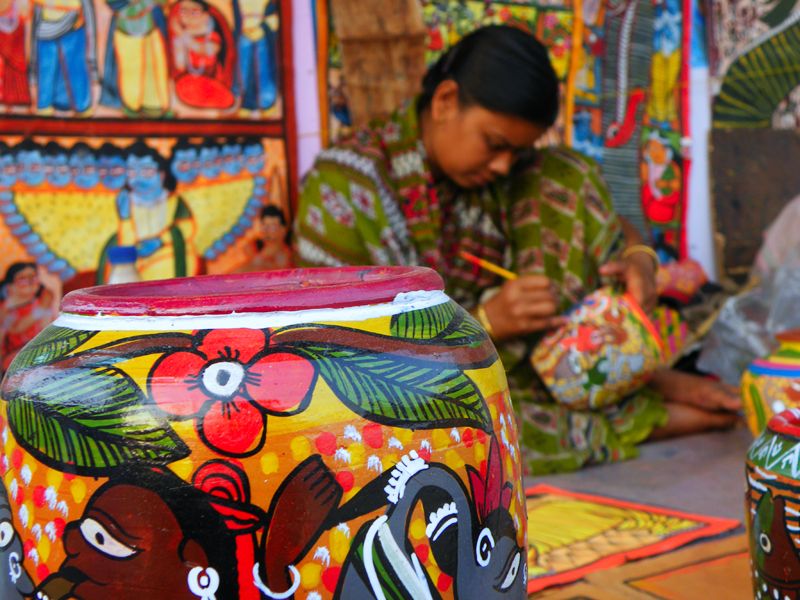
Handicraft Villages
10 villages across West Bengal have been developed as rural craft hubs by the West Bengal government and UNESCO, in conjunction with Banglanatak. Purpose-built Folk Art Centers in the villages provide accommodations and information for guests. TourEast, an initiative of Banglanatak, holds annual rural fairs at the villages and arranges trips. It's possible to see the artisans at work and learn about their crafts including dhokra art, pottery, painting, clay dolls, terracotta, bamboo works, and musical instruments. The villages can be visited throughout the year but the best time is from September to April.

